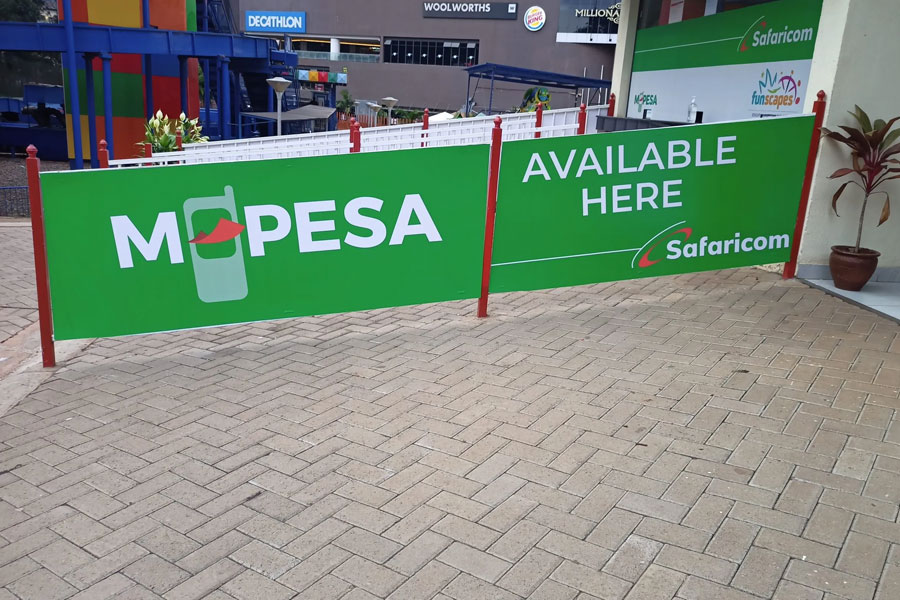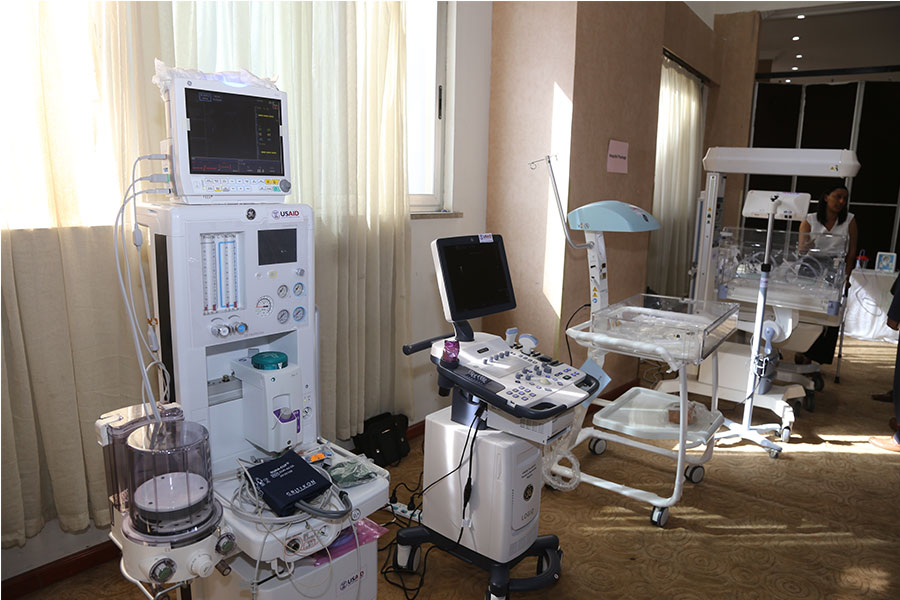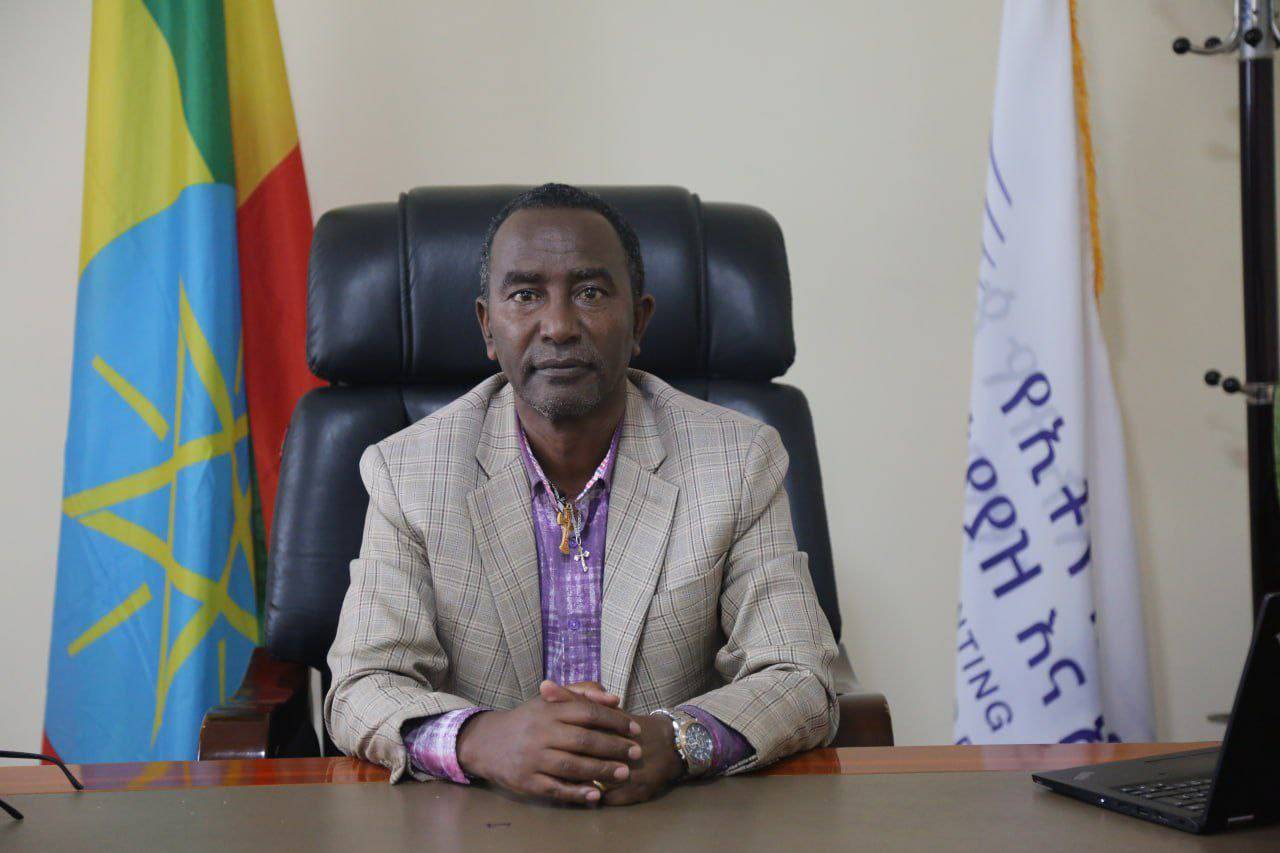
Fortune News | Jul 29,2023
It was a humid day out in Addis Abeba's streets where customers sat comfortably away from the heat in a breezy location at a coffee shop, Tomoca, in the old railway station near La Gare. The shop, famous for its aromatic coffee, serves mostly bankers who work around the neighborhood. Around mid-day, a sales agent for E-birr hunting for customers hopped in to persuade them to open an E-birr account that would allow customers to pay for their coffee at the shop.
A novice on the job, Mekdes Alemayehu met with a lot of resistance to the idea of subscribing to a mobile money service, although some people seemed to be open to it. The justifications people gave her were at times laugh-worthy to Mekdes: from people who tell her they already have several mobile money accounts to something along the lines of: "I like the feel of cash." She hears them all.
In spite of substantial pushback, Mekdes has made it her goal to have clients open at least 15 accounts a day and receives her commission off transactions. She also provides services such as processing deposits and recharging accounts.
The Tomoca branch, its eleventh which opened six months ago as part of the La Gare Eagle Hills Project, partnered with E-birr to act as a merchant agent. Ever since, up to 30 customers a day make payments through E-birr, according to the branch manager, Martha Teshome. The shop's incentive is getting thorough data about its customers, which it uses to reward the regulars.
Two of these customers are Tegistu Gebre and Zerihun Gebru. Both frequent Tomoca, and recently they opened E-birr accounts. Zerihun has a little more practice with mobile banking services as he uses them to transfer credit for his job driving for ride-hailing companies. Tegistu is fairly new to digital payment systems, despite his brief attempt at using CBE-Birr. He gave up after finding it difficult to get used to. He compares getting accustomed to mobile banking services to trying out a new coffee place; both need a little nudge and a little guidance.
Mobile money has steadily been gaining popularity. Pioneered by M-Birr in 2016 following two years of pilot testing, its service has mobilised two million users over the past six years. Overseeing close to 2,700 branches, no less than 17,000 agents, and over 10,000 merchants, M-birr has a strong footing in this thriving market. But it is not alone.
Later the same year, a Dutch company, Belcash, joined the market to launch Hellocash, partnering with various microfinance institutions and banks, including the Somali Microfinance Institution, the Cooperative Bank of Oromia and Wegagen Bank.
Coop-E-birr, branded for the Cooperative Bank of Oromia, provides a range of mobile financial services, including utility payments, bank transfers, remittances, merchant payments and mobile top-up.
Although the industry faces hurdles in digital adaptability and low integrity of connectivity infrastructure, chief among these challenges is interoperability.
Interoperability is a crucial tool these companies are using for the ease of banking and mobile money services. It is recognised as a financial inclusion tool as it encourages people to actually use services beyond just subscribing. Improving interoperability is listed as one of 11 key intervention areas to promote financial inclusion, according to a study conducted by Precise Consult International, a finance and business consultancy. The functionality is relevant to mobile banking, mobile wallets and mobile money.
"Interoperability between payment services is crucial in expanding the ecosystem and bringing about cashless trading," says Abebe Mulu, director of business development at E-birr.
Customers make payments to Tomoca via their mobile money accounts.
E-birr is now conducting testing to allow inter-bank transactions from within the app. These payment services are one of the backbones of technological advancement in the financial sector. In Ethiopia, where technological innovations are in their infancy, the lack of an integrated payment system has been a drag for years and continues to be so.
The lack of digital payment services is indeed a common problem faced by most tech startups, especially those in e-commerce, according to Markos Lemma, the founder of Iceaddis.
"We're still doing cash on delivery due to payment issues," he said.
The unavailability of adequate application programming interfaces (APIs), a computer interface that allows for interaction between two systems, is also an issue. In mobile payments, APIs provided by banks can be used by digital platforms to facilitate payment. Markos has observed that banks do not actually want anything that connects to their core services.
The difficulty to seamlessly process online payments with and between banks remains one of the bottlenecks start-ups face to move forward in an evolving market.
Monetisation is a new buzzword used by those ambitious enough to make it in the digital economy. One of these is Dawit Abraham, one of the brains behind Qene Games, founded in 2017. The local startup works on online game development, and all three mobile games the company makes available online require digital payments infrastructure to make money.
"Even if we build a good game, it would be difficult to monetise in Ethiopia," Dawit told Fortune. "We were initially building games for the Ethiopian market; the lack of such payments has significantly affected our growth."
Qene is now pushing its developers to come up with a mobile app store as an alternative for the Google and Apple stores and plans to integrate as many payment services as possible.
However, the industry has seen innovative attempts to address gaps in interoperability. YenePay Financial Services Technology Plc, established in 2015, is one player that has developed a system to allow interoperability. After years of development, the YenePay application was launched a year ago, allowing its users to transact between banks and merchants. It works in partnership with five mobile banking services under the banks: Amole, CBE-Birr, Hellocash of Anbessa Bank, Wegagen Bank and M-birr. Within a year, it has managed to attract close to 30,000 users.
The surge in the number of users is consistent with the growth in the number of mobile banking services. It increased by 101pc last year, and mobile device transactions jumped by almost 130pc to 68.3 billion Br.
Endashaw Tesfaye, the deputy CEO of MOSS ICT Consultancy, attributes this significant jump in usage to several reasons but primarily to the impact of COVID-19.
A series of directives put in place by the central bank following the outbreak of COVID-19 opened up the possibilities for alternative transactions. People have become more aware than ever of the need for online payment methods, and digital banking services came in handy. To top that off, the transaction and transfer limits declared by the central bank have pushed users to lean toward cashless transactions.
Although digital banking interoperability has yet to be achieved, bank-to-bank account interoperability, where transactions can be had between two different banks, was launched a decade ago by the National Bank of Ethiopia (NBE). Real-time gross settlement (RTGS) and automated clearing house (ACH) systems developed under the central bank are currently in use.
The next step in the quest to ensure interoperability came with the formation of EthSwitch, the national switch operator. Having enlisted the central bank as a shareholder, EthSwitch was incorporated in 2011 to provide interoperability switch solutions exclusively. It has implemented interoperability between automated teller machines (ATMs) and between point-of-sale (POS) terminals. It has now piloted a system that creates interoperability between mobile banking, mobile wallets and mobile money outlets.
Nine commercial banks, including the state-owned Commercial Bank of Ethiopia (CBE) and the Bank of Abyssinia, are testing out the system, Yelebes Addis, CEO of EthSwitch, disclosed to Fortune.
"As banks are obligated to join the national switch system upon formation, it would be easier for the national switch to provide consistent interoperability services as new entrants join the market," said Yelebes.
All the infrastructure and legal frameworks are in place to ensure interoperability, according to Solomon Damtew, principal of payment systems oversight and development at the central bank. However, he questions whether the banks are willing to innovate and develop interoperable services. Banks are for-profit companies, and investing in digital payment options requires much in the way of resources and time.
"But it will pay off in the long run," said Martha Hailemariam, head of the Payment & Settlement Systems Directorate at NBE. "The industry would benefit as non-bank institutions join."
The Bank of Abyssinia is one of the commercial banks investing resources aiming for a return over the long haul. It operates two online payment outlets: a mobile banking app and GizePay, its mobile wallet that serves over 300,000 users.
The Bank started testing mobile banking interoperability with the central bank's RTGS system before any of its peers, according to Sosena Mengesha, chief digital marketing officer at Abyssinia.
"We were eager to kickoff interoperability even before EthSwitch's system came into play," she said, confirming that the Bank has now joined EthSwitch's pilot testing.
Although most mobile money and mobile wallet services claim to provide the service free of charge, there have been some complaints where people have been charged an exaggerated amount of service charges for transactions. CBE-Birr, the Commercial Bank of Ethiopia's mobile money outlet, is one such service that faces the wrath of its users, despite claims to the contrary from its Vice President for Branch & Digital Banking, Fikresilassie Zewdu.
Since its launch in 2017, CBE-Birr has garnered four million subscribers, over 50,000 agents and 60,000 merchants, making it the biggest mobile money service yet. Its agents are given a commission fee ranging from 3.50 Birr to 10 Birr paid from the Bank's side.
The central bank allows banks to set their own rates. But it wants to ensure affordability, hoping to fulfill its goals for financial inclusion. Its officers intervene and advise service providers to revise their rates when necessary.
However, the big push for the industry came last year after authorities at the central bank issued a directive allowing non-financial institutions to provide payment operator and instrument issuer services. Highly anticipated to foster competition and encourage the development of new systems and instruments that could go hand-in-hand with the current outlets, 13 companies have filed for permits from the central bank. More applications are coming, according to Solomon.
Among these applicants is Ethio telecom. The green light has already been given to launch its mobile money service, allowing the state-owned monopoly to branch out from its core business for the first time in over a century of operation. Having more than 46 million subscribers, for better or worse, Ethio telecom's mobile money is more than likely to transform the industry significantly. Ethio telecom has about 200,000 agents across the country; if actively engaged, this network is hoped to do wonders for attracting the unbanked segment in society.
As all service providers are just entering the industry, Solomon sees Ethio telecom's launching of a mobile money service as supportive and complementary.
Industry observers, however, warn that although the current competition seems to be between banks to roll out digital payment outlets, their toughest days are ahead of them with cutthroat competition coming from the telecom giant. The competition will rely on efficiency and convenience; two traits the telecom monopoly is better positioned to exploit.
Endashaw acknowledges this but hopes members of the public get the most out of it as competition nurtures better services and competitive pricing.
The story for the Commercial Bank of Ethiopia, the state-owned giant with over 28 million clients, will be different, according to Fikresillasie, its vice president.
"Ethio telecom's new service is rather an opportunity eagerly awaited by the Bank," he told Fortune. "Ethio telecom plans to go into revenue generation through its mobile money directly; CBE's primary goal is to attract more users and mobilise deposits. In the end, money collected from users would be deposited into the telecom's account with the CBE."
The two state-owned entities have already made a deal to integrate their respective systems.
"We're going to make history," said Fikresillasie with enthusiasm.
Whether this enthusiasm will be shared by users such as Tegistu and Zerihun when they pay for coffee at shops such as Tomoca is anyone's guess. Last week though, they needed a push to pay with their phones.
PUBLISHED ON
Mar 20,2021 [ VOL
21 , NO
1090]

Fortune News | Jul 29,2023

Fortune News | Sep 10,2021

Radar | Apr 16,2022

Fortune News | Jun 20,2020

Radar | Feb 08,2020

Fortune News | Feb 16,2019

Covid-19 | Mar 21,2020

News Analysis | Nov 20,2021

Radar | Apr 30,2024

Fortune News | Sep 21,2025

Dec 22 , 2024 . By TIZITA SHEWAFERAW
Charged with transforming colossal state-owned enterprises into modern and competitiv...

Aug 18 , 2024 . By AKSAH ITALO
Although predictable Yonas Zerihun's job in the ride-hailing service is not immune to...

Jul 28 , 2024 . By TIZITA SHEWAFERAW
Unhabitual, perhaps too many, Samuel Gebreyohannes, 38, used to occasionally enjoy a couple of beers at breakfast. However, he recently swit...

Jul 13 , 2024 . By AKSAH ITALO
Investors who rely on tractors, trucks, and field vehicles for commuting, transporting commodities, and f...

Oct 11 , 2025
Ladislas Farago, a roving Associated Press (AP) correspondent, arrived in Ethiopia in...

Oct 4 , 2025
Eyob Tekalegn (PhD) had been in the Governor's chair for only weeks when, on Septembe...

Sep 27 , 2025
Four years into an experiment with “shock therapy” in education, the national moo...

Sep 20 , 2025
Getachew Reda's return to the national stage was always going to stir attention. Once...